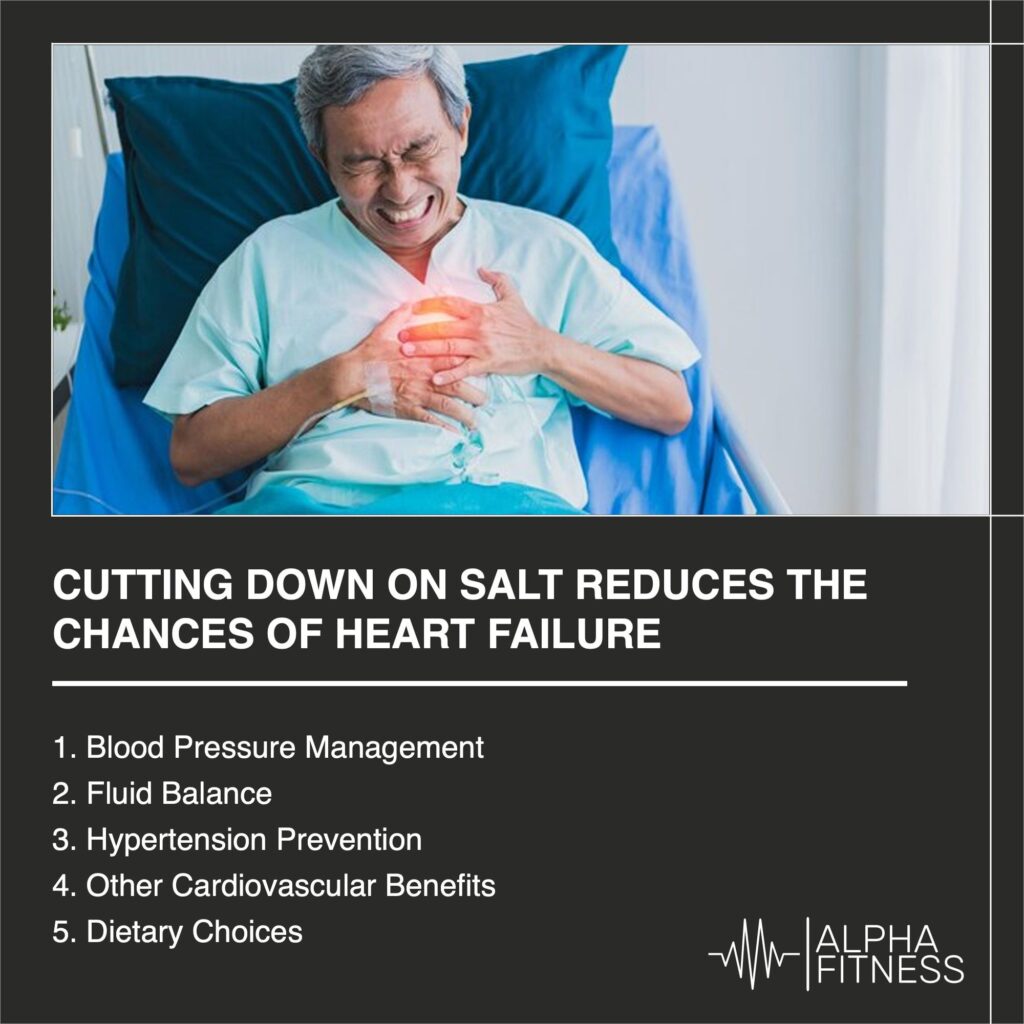
Below is a list of useful links:
- How legumes help cure shingles
- How does sunlight kill the rabies virus?
- Cutting down on salt reduces the chances of heart failure
- Green, leafy vegetables usually fight dementia
- Tension works as a door for hypertension
Reducing salt intake can indeed have a positive impact on heart health and may lower the risk of heart failure, among other cardiovascular conditions. Here’s how it works:
Blood Pressure Management: High salt intake is linked to high blood pressure (hypertension), which is a significant risk factor for heart failure. Excess salt can cause your body to retain water, increasing blood volume and putting additional strain on the heart. Lowering salt intake can help reduce blood pressure, reducing the risk of heart failure.
Fluid Balance: Consuming too much salt can disrupt the balance of fluids in your body. This can lead to fluid buildup in the lungs and around the heart, which can exacerbate heart failure or contribute to its development.
Hypertension Prevention: Chronic high blood pressure is a leading cause of heart failure. By cutting down on salt, you can help prevent or manage hypertension, thus reducing the risk of heart failure.
Other Cardiovascular Benefits: Lowering salt intake can have additional cardiovascular benefits beyond reducing blood pressure. It may help improve the function of the endothelium, the lining of blood vessels, and reduce arterial stiffness. These factors are important for overall heart health and can reduce the risk of atherosclerosis (hardening of the arteries) and other heart-related conditions.
Dietary Choices: Reducing salt intake often involves making healthier dietary choices. It encourages the consumption of foods that are naturally lower in sodium, such as fresh fruits and vegetables, whole grains, lean proteins, and unsalted nuts. These foods provide essential nutrients and can promote overall heart health.
Reading Food Labels: Learning to read food labels and identify high-sodium products is a valuable skill for individuals looking to reduce their salt intake. Many processed and packaged foods contain hidden salt, so being mindful of ingredient lists and nutrition facts can help you make healthier choices.
It’s essential to remember that individual dietary needs can vary based on factors like age, genetics, existing health conditions, and activity levels. Therefore, it’s a good idea to consult with a healthcare professional or a registered dietitian before making significant changes to your diet, especially if you have specific health concerns or conditions.
In conclusion, reducing salt intake is an important part of maintaining heart health and reducing the risk of heart failure by helping to control blood pressure and fluid balance in the body. However, it should be combined with other healthy lifestyle choices to promote overall cardiovascular wellness.




2 thoughts on “Cutting down on salt reduces the chances of heart failure”